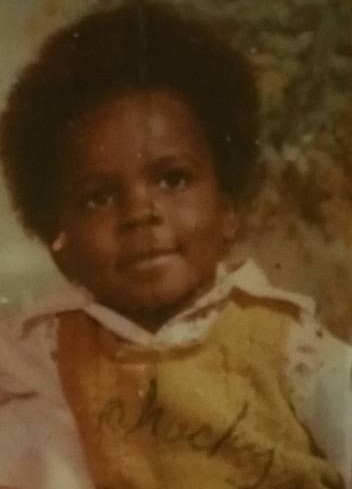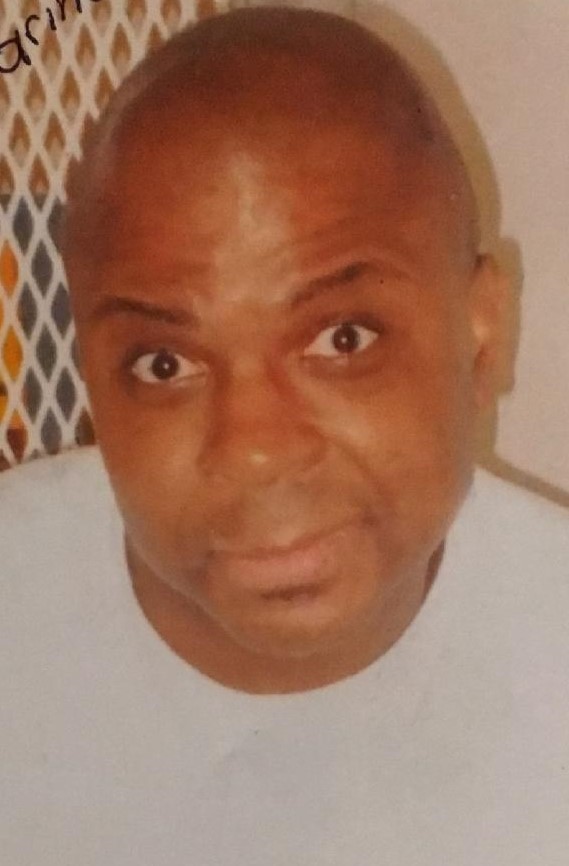Not everyone executed by Texas has been guilty of the crime they were executed for, and not all those currently on death row are guilty. That is reality. Another reality – it doesn’t matter your circumstances – the state of Texas treats all death row inmates inhumanely. If you live there, you live a solitary existence with no human contact and no eye on what is happening in the world around you. In many cases – for decades.
Charles Mamou, who has lived among the condemned for nearly two decades was recently led from his cell while it was routinely shaken down. As is standard practice, he was required to strip of his clothes, get physically inspected, and run his fingers through his hair – even though he has none. Then he was led to an empty cell while officers inspected his belongings.
While in the empty cell, Mamou noticed how loud everything was – the clangs of metal against metal weren’t buffered by a room full of personal belongings. Voices came back amplified and garbled. And then he noticed the window. It was the same size as the one in his cell – four inches wide and three and a half feet long – but it faced the other side of the building. The parking lot.

As he looked out of his temporary cage onto sights he never sees – cars; a mail delivery; workers going to and fro; and children actually sprinting on the sidewalk – in that moment, he realized just how displaced and removed from the world he has become. Standing on that bunk, in that empty cage, and peering out that four inch window – he was overcome with homesickness and how different everything looked than he remembered. Looking at the sky which he described as a bright Caribbean vacation beach blue, he couldn’t help but think of what all the inmates get caught up in thinking when they can’t stop themselves, “What would I be doing on a day like today?”
During the trial of Charles Mamou in 1999, one drug dealer after another was brought in to testify against him, and it appears that none of them were charged for their participation in any of the events that took place. The state didn’t have DNA, a confession, a weapon, fingerprints or an eyewitness, so they needed something to convict Mamou with, and Harris County is very adept at getting people sentenced to death, with the highest rate in the country.
A detective who was on the stand was asked, “At a later time did you look for more than one individual other than Mr. Mamou?”
“Yes.”
“What is that person’s name?”
“We – there was an individual that – “
“Can you just give me his name?”
“Terrence Dodson.”
“Other than Terrence Dodson and Mr. Mamou, was there a third individual you were looking at as a potential suspect?”
“A Shawn England.”
“How do you spell the last name.”
“I believe it’s E-N-G-L-A-N-D.”
“Okay. What about Samuel Johnson?”
“Samuel Johnson’s name came up later in the investigation.”
“Were there any other names?”
“There was an individual by the name of – did I say Ced, C-E-D?”
“I’m sorry?”
“Ced, an individual. C-E-D is all we had.”
“So we have Charles Mamou, Ced, Terrence Dodson, Shawn England, and Samuel Johnson?”
“Yes.”
So, when Samuel Johnson took the stand, he was very aware what the outcome of the trial could mean to him, as he had already been taken into custody at one point.
Johnson testified that on December 6, 1998, he took Charles Mamou to, “buy some dope.” When asked what he was going to get out of the deal, Johnson replied, “I was going to get something out of it. I don’t know how much.”
More specifically, he was asked, “You were going to get dope, or you were going to get what?”
“Money.”
Samuel Johnson had no doubt about what was happening. He was asked, “Tell the members of the jury exactly what it was that y’all were going to do.”
“Go buy some drugs.”
“All right. And do you know the quantity of drugs that the both of you were going to be buying?”
“No, it was large.”
There was no question about Samuel Johnson’s understanding of the crime, and there was no doubt as to his role in the planned crime. “Did you have an agreement with Mr. Mamou to engage in some type of illegal conduct?”
“Yes.”
“You knew full well, when you left to go and, in fact, throughout the day when you’re with him, that you were going to engage in some type of illegal conduct?”
“Yes.”
“And you realized that conduct was a felony, correct?”
“Right.”
Samuel Johnson was going into a drug deal, knowing what he was getting involved in. As the drug deal went from one location to another, all parties trying to find a place in which they felt comfortable, it was Samuel Johnson who drove the car – his car. Without his car and his cell phone – none of it would have taken place.
At the scene of the drug deal, it was Samuel Johnson who drove his car down that dark road with the intention to, “buy some dope.”
Samuel Johnson, according to his testimony, drove and participated in the drug deal. What is interesting is that even though he had driven down a dark road and parked, and by his account of the story he was there as part of a plan to purchase a large amount of drugs from people that a logical person would consider armed, Samuel Johnson expressed that he was innocent of everything that took place. He was guilty of all the planning and being aware of what was going to take place and actually being the only means of making it happen for Mamou – but once the drug deal actually took place and the shooting started – Samuel Johnson testified that he got back in his car, drove to his home, took a shower, drank a soda, didn’t disturb his wife and went to bed. According to him, the next morning he got up and went to work without ever speaking with anyone about seeing people get shot or the drug deal he went on that resulted in no drugs – although he supposedly watched his partner in crime drive the car away that was supposed to have the drugs in it.
After testifying as to how he innocently ended his evening, it appears that Samuel Johnson was never charged with his involvement in what took place that night.
Although he testified to his innocence after the moment that the first shot was fired, at some point during the investigation, Samuel Johnson was taken into custody by a homicide detective. While on the stand, he was asked, “At some point you were arrested, right?”
“Right.”
“And you’re taken into police custody?”
“Right.”
“What’s the name of the officer that took you into custody? Do you know?”
“No, I don’t.”
“Is it a homicide detective?”
“Yes.”
He also testified that he lied to police. He was asked, “Well, did you tell them at that time when you gave a statement that you did not see anybody with a gun?”
“Yes.”
“Is that true?”
“No.”
“Is that a lie?”
“Yes.”
So, as with the other witness involved in the drug deal, Samuel Johnson also admitted to lying on the stand.
On the weight of the testimony of drug dealers Charles Mamou has been living on death row for nearly twenty years, and is nearing his execution. He no longer looks out the four inch window on his side of the building, as he explained that all he can see through his regular window is another prison building, trees as big as Jack’s beanstalks, and a guard tower. Charles Mamou has always maintained his innocence.
TO CONTACT CHARLES MAMOU:
Charles Mamou #999333
Polunsky Unit 12-CD-53
3872 South FM 350
Livingston, TX 77351

Related Articles: What Does It Take To Get On Texas Death Row;
Texas Death Sentence Clouded By Irrefutable Doubt;
Awaiting Execution – “Have You Ever Felt Like You Can Taste The Future?”;
Because They Can – Execution In Texas;
Letter From Key Mamou Witness Contradicting Testimony;
Testimony Worthy Of An Execution? The Mamou Transcripts – Part I;
The Mamou Transcripts Part II
REFERENCES:
Harris County, Texas. Charles Mamou, Jr. Vs. The State Of Texas. Sept. 1999.
![]()